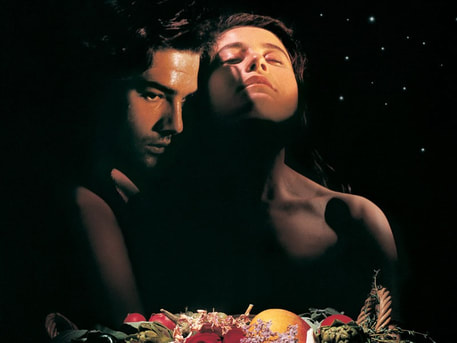Film ReviewsLike Water For ChocolateApr 27, 2017 Anchorage Press
|
|

This year marks the 25th anniversary of Like Water for Chocolate, the film based on the magical realist novel written by Laura Esquivel in 1989. The movie is directed by Alfonso Arau who at the age of 85 still continues to act in movies, although his last directorial work was in 2010. Like Water for Chocolate, both the Mexican novel and film are titled after an old saying that describes the process for making chocolate using water as opposed to milk. The water is put on the heat and when it reaches its optimal boiling point, the chocolate is put in so that it melts into a perfectly timed hot beverage—if poorly timed, it simply won’t taste the same. The saying is often used to describe people as well, if someone is said to be “like water for chocolate”, he or she is at the ready for love, sex, life or whatever.
Like Water for Chocolate tells the story of Tita (Lumi Cavazos) who is growing up during revolutionary Mexico. She is the youngest of three daughters, and tradition dictates that she must not marry, because her duty is to take care of her mother. Along comes Pedro (Marco Leonardi) and they fall in love. It is no secret that things don’t work out the way the love birds would want. The story is told through the lens of magic and tradition, of cultural values that are articulated through the senses, more specifically through food that feeds these senses. There is a long tradition in Mexican culture, dating back to before the Spanish conquest, that understands the power of transmitting thoughts and feelings through objects and foods; so when Pedro is marrying Tita’s sister instead of her and Tita accidentally cries into the cake batter, no one is surprised at the Roman-style regurgitation frenzy that ensues.
The story goes on, unfolding through situations and events of mythical proportions, and sometimes seemly absurd. Like Water for Chocolate lives in the hearts of many viewers because it shows that love and cruelty are sometimes on an equal footing; and when the impossible happens all viewers can do is say as Mexicans say, “I don’t believe it, but it’s true.”
Viewers shouldn’t miss the opportunity to see Like Water for Chocolate on the big screen, after 25 years, they should like water for chocolate.
Like Water for Chocolate tells the story of Tita (Lumi Cavazos) who is growing up during revolutionary Mexico. She is the youngest of three daughters, and tradition dictates that she must not marry, because her duty is to take care of her mother. Along comes Pedro (Marco Leonardi) and they fall in love. It is no secret that things don’t work out the way the love birds would want. The story is told through the lens of magic and tradition, of cultural values that are articulated through the senses, more specifically through food that feeds these senses. There is a long tradition in Mexican culture, dating back to before the Spanish conquest, that understands the power of transmitting thoughts and feelings through objects and foods; so when Pedro is marrying Tita’s sister instead of her and Tita accidentally cries into the cake batter, no one is surprised at the Roman-style regurgitation frenzy that ensues.
The story goes on, unfolding through situations and events of mythical proportions, and sometimes seemly absurd. Like Water for Chocolate lives in the hearts of many viewers because it shows that love and cruelty are sometimes on an equal footing; and when the impossible happens all viewers can do is say as Mexicans say, “I don’t believe it, but it’s true.”
Viewers shouldn’t miss the opportunity to see Like Water for Chocolate on the big screen, after 25 years, they should like water for chocolate.